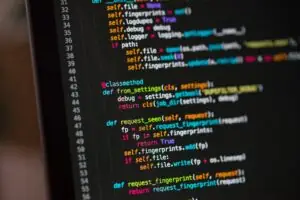In computer programming, understanding the fundamental data types is crucial, and one such essential type is the boolean variable. Named after the mathematician George Boole, a boolean variable holds only two possible values: true or false. Its significance lies in its ability to represent logical states, making it a cornerstone in decision-making within programming. Let’s explore the complexities of boolean variables and their role in shaping the logical understanding of programming.
The Essence of Boolean Variables
At its core, a boolean variable serves as a binary switch, akin to a light switch that can either be on (true) or off (false). In the programming world, boolean variables are often employed to control the flow of execution within decision-making statements like if-else conditions, while loops, and for loops. This simplicity belies its profound impact on the logical structures of computer programs.
Consider the example of a simple if-else statement in C programming:
int a = 5;
int b = 10;
bool result = (a > b); // Evaluates to false
if (result) {
// Code block executed if 'result' is true
printf("a is greater than b");
} else {
// Code block executed if 'result' is false
printf("b is greater than or equal to a");
}Here, the boolean variable ‘result’ is employed to store the outcome of the logical condition (a > b), and based on this outcome, the program takes a specific path. This ability to make decisions based on logical conditions is a fundamental aspect of boolean variables in programming.
Implementation and Representation in C Programming
In the C programming language, boolean variables are not inherently built-in; however, the C99 standard introduced support for boolean variables through the inclusion of the header file “stdbool.h.” This header provides a definition for the ‘bool’ type, enabling programmers to declare variables with true or false values.
#include <stdbool.h>
bool isRaining = true; // Declaration of a boolean variable
Additionally, boolean variables can be implemented using enumeration types or through the use of ‘define’ to assign integer values (0 for false and 1 for true). This flexibility allows programmers to choose the method that best suits their coding preferences and requirements.
Boolean Variables in Conditional Statements, Loops, and Functions
Boolean variables find extensive use in conditional statements, where the flow of the program is determined by the truth or falsity of a given condition. This is evident in constructs like if-else statements, where specific code blocks are executed based on boolean evaluations.
bool isDaytime = true;
if (isDaytime) {
// Execute daytime-related code
printf("It's daytime!");
} else {
// Execute nighttime-related code
printf("It's nighttime!");
}Moreover, boolean variables play a vital role in loops, serving as the conditions that dictate whether the loop continues or terminates. For instance, in a ‘while’ loop, the loop iterates as long as the boolean condition holds true.
bool keepLooping = true;
int count = 0;
while (keepLooping) {
// Code executed within the loop
count++;
if (count >= 5) {
keepLooping = false; // Break the loop after 5 iterations
}
}Boolean variables can also be used as return types for functions, allowing the function to convey a true or false result based on its operations.
#include <stdbool.h>
bool isEven(int number) {
return (number % 2 == 0);
}Conclusion
In conclusion, the boolean variable stands as a fundamental building block in programming, providing a concise means of expressing and utilizing logical conditions. Its binary nature aligns seamlessly with the foundational principles of decision-making in computer programs. Whether steering conditional statements, controlling loop iterations, or determining function outcomes, boolean variables are indispensable tools in the programmer’s arsenal. As we navigate the intricate landscape of programming, the boolean variable remains a steadfast guide, helping shape the logical pathways that define efficient and effective code.
FAQ
Follow us on Reddit for more insights and updates.





Comments (0)
Welcome to A*Help comments!
We’re all about debate and discussion at A*Help.
We value the diverse opinions of users, so you may find points of view that you don’t agree with. And that’s cool. However, there are certain things we’re not OK with: attempts to manipulate our data in any way, for example, or the posting of discriminative, offensive, hateful, or disparaging material.